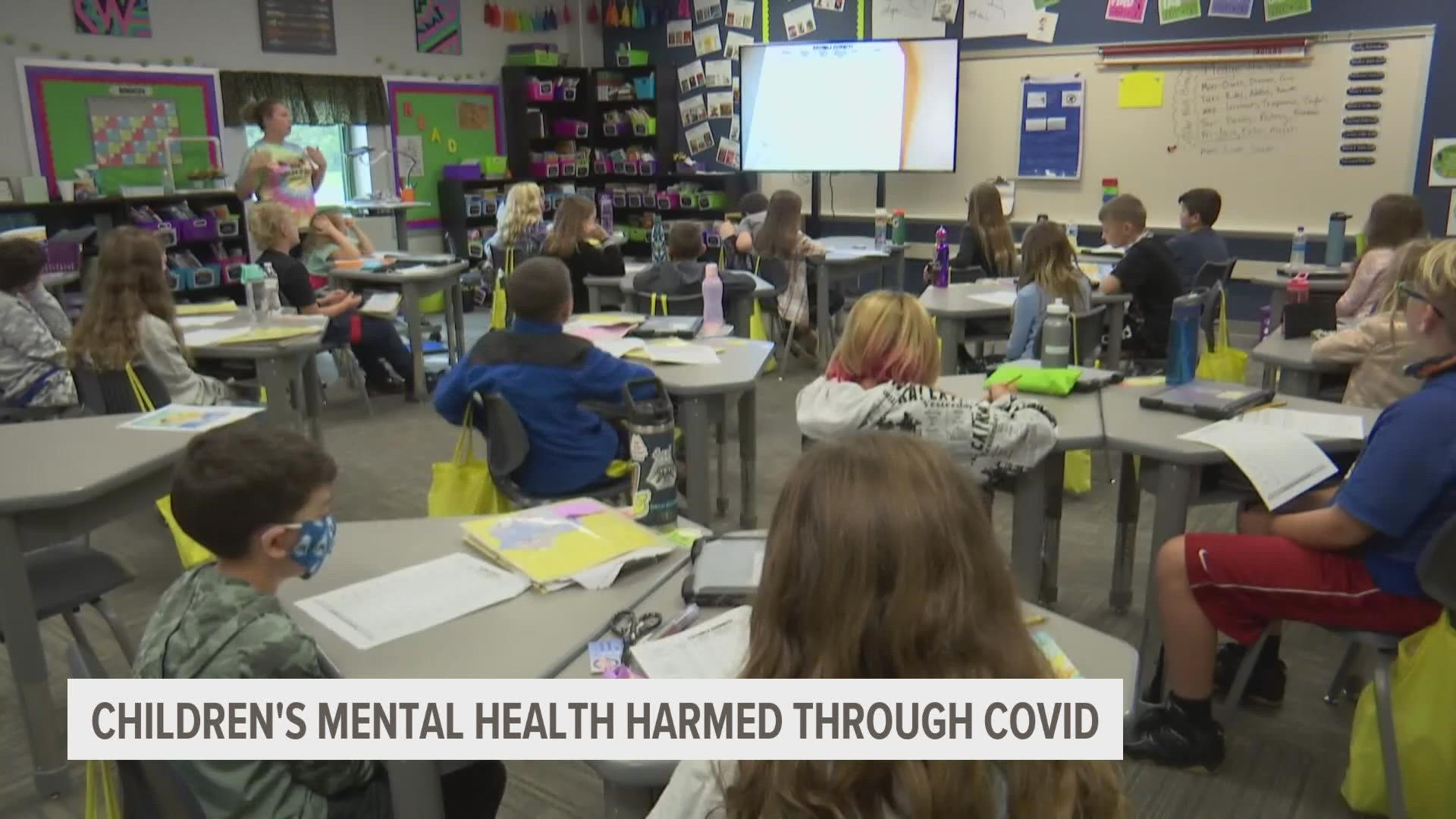IOWA, USA — COVID has been hard on everyone--that's no surprise. But according to an advisory from the U.S. Surgeon General Dr. Vivek Murthy, kids across the country are struggling with their mental health.
Globally, symptoms of depression and anxiety among children have doubled, and that's just the start.
"Kids, in particular, just that loss of freedom of socialization would be a big part of it. Everything's just a little bit more difficult to do than it was before," said Mandy Gesme, a children's mental health counselor with Pathways Behavioral Science.
According to the surgeon general's advisory, risk factors for negative mental health symptoms among children in the pandemic include pre-existing mental health challenges, having parents or caregivers who are frontline workers, and family struggles with finances or housing. Another one that might be a bit surprising—kids are sensitive to having their routines disrupted.
"Day-to-day, not knowing what might present itself is difficult and hard on kids and their mental health. Adults, you just get a little bit better, you build up those coping skills, but kids don't quite have that capacity yet," Gesme said.
All of those problems don't go away when kids leave home, either. Many kids end up struggling at school, as well. Lesley Christensen, a social worker for Waukee Community School District, says that the difference isn't just about grades.
"It's not necessarily impacting academics so much as their peer-to-peer relationships. We're hearing a lot about social skill regression," Christensen said.
Fortunately, there are resources available to help—no matter your income level. COVID Recovery Iowa provides 24/7 free virtual counseling to any Iowan in need of help, thanks to a grant from FEMA. If you're not sure about whether or not your child needs those resources, there are signs to look out for.
"If it's impacting their day-to-day ability to get done what they need to be getting done [...] or what they want to be getting done, then it's time to reach out for help," Gesme said.
WATCH | Survey: Almost 40% of Iowans living in rural communities struggling with mental health during pandemic

